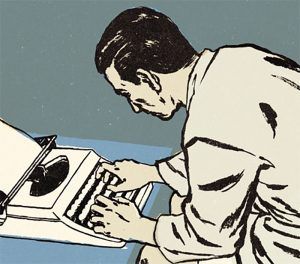Dustin Illingworth at the Paris Review:
 The themes of John Cheever’s journals—God, sex, guilt, and nature—manage to instill genteel ennui with the anguished moral passion of a Russian novel. Published in 1990, eight years after his death from lung cancer, and decades after he had been enshrined as America’s premiere bourgeois fabulist, the journals shocked in their revelation of the self-lacerating, booze-addled voluptuary hiding in the fine suit of a country squire. “Rarely has a gifted and creative life seemed sadder,” a chastened John Updike wrote upon their publication. But though the gap between Cheever the cultural effigy and Cheever the man was received with surprise and consternation, the ambiguity of his work had always betrayed such a fissure. Cheever’s greatest fiction enacts a kind of doubleness, a yearning for grace darkly marbled with lust and duplicity. The rapturous moments—one thinks of the beautiful early story “Goodbye, My Brother,” with its darkness and iridescence, the naked women walking out of the sea—barely conceal the saturnine streaks.
The themes of John Cheever’s journals—God, sex, guilt, and nature—manage to instill genteel ennui with the anguished moral passion of a Russian novel. Published in 1990, eight years after his death from lung cancer, and decades after he had been enshrined as America’s premiere bourgeois fabulist, the journals shocked in their revelation of the self-lacerating, booze-addled voluptuary hiding in the fine suit of a country squire. “Rarely has a gifted and creative life seemed sadder,” a chastened John Updike wrote upon their publication. But though the gap between Cheever the cultural effigy and Cheever the man was received with surprise and consternation, the ambiguity of his work had always betrayed such a fissure. Cheever’s greatest fiction enacts a kind of doubleness, a yearning for grace darkly marbled with lust and duplicity. The rapturous moments—one thinks of the beautiful early story “Goodbye, My Brother,” with its darkness and iridescence, the naked women walking out of the sea—barely conceal the saturnine streaks.
more here.
